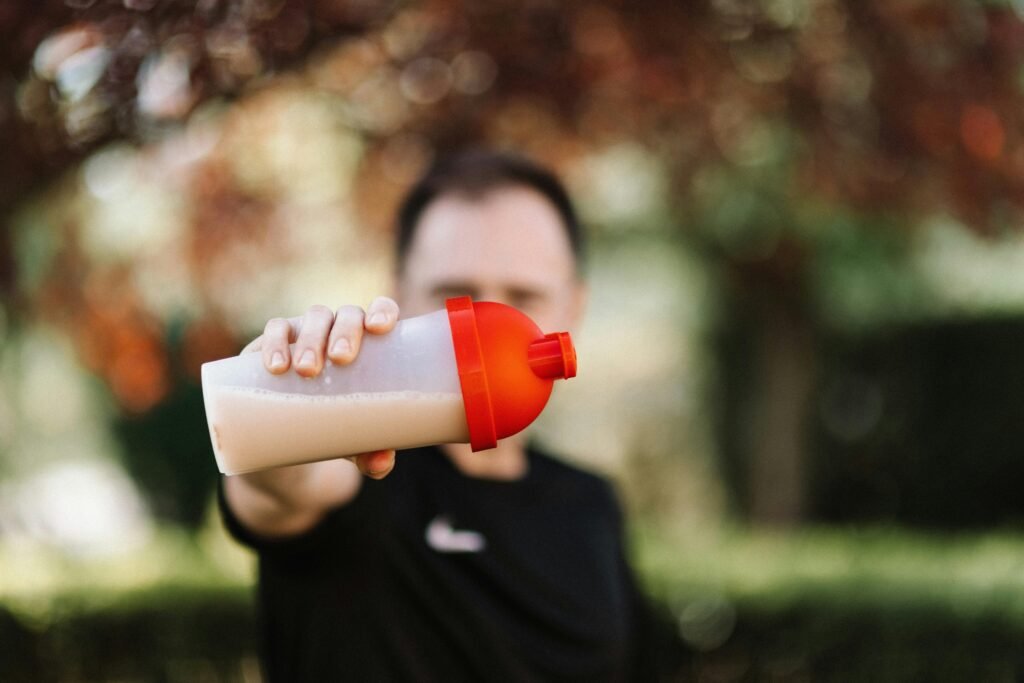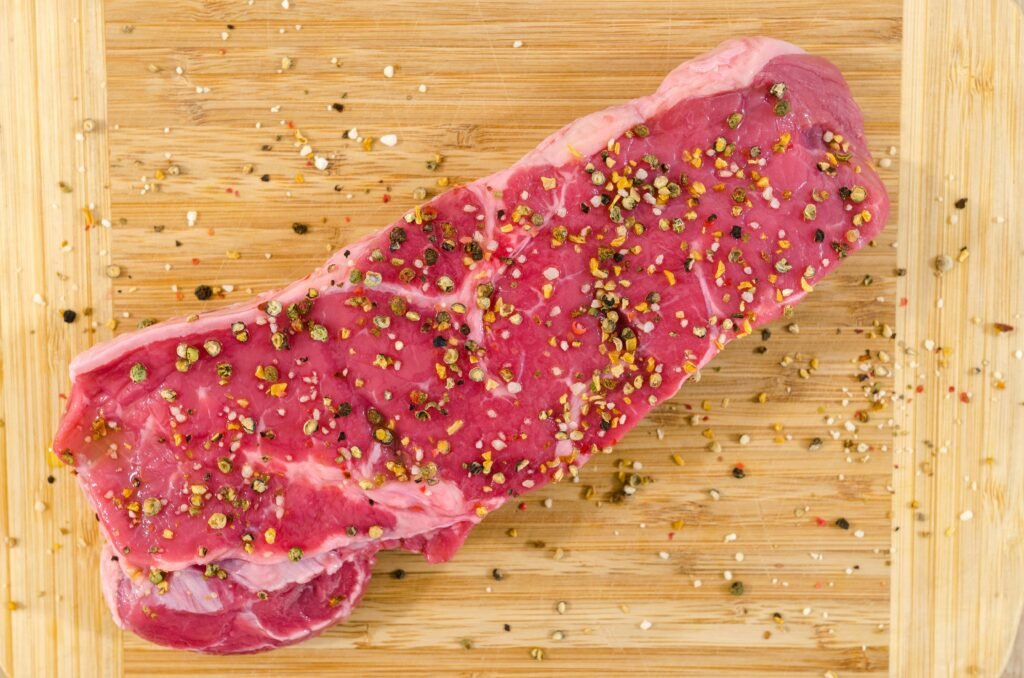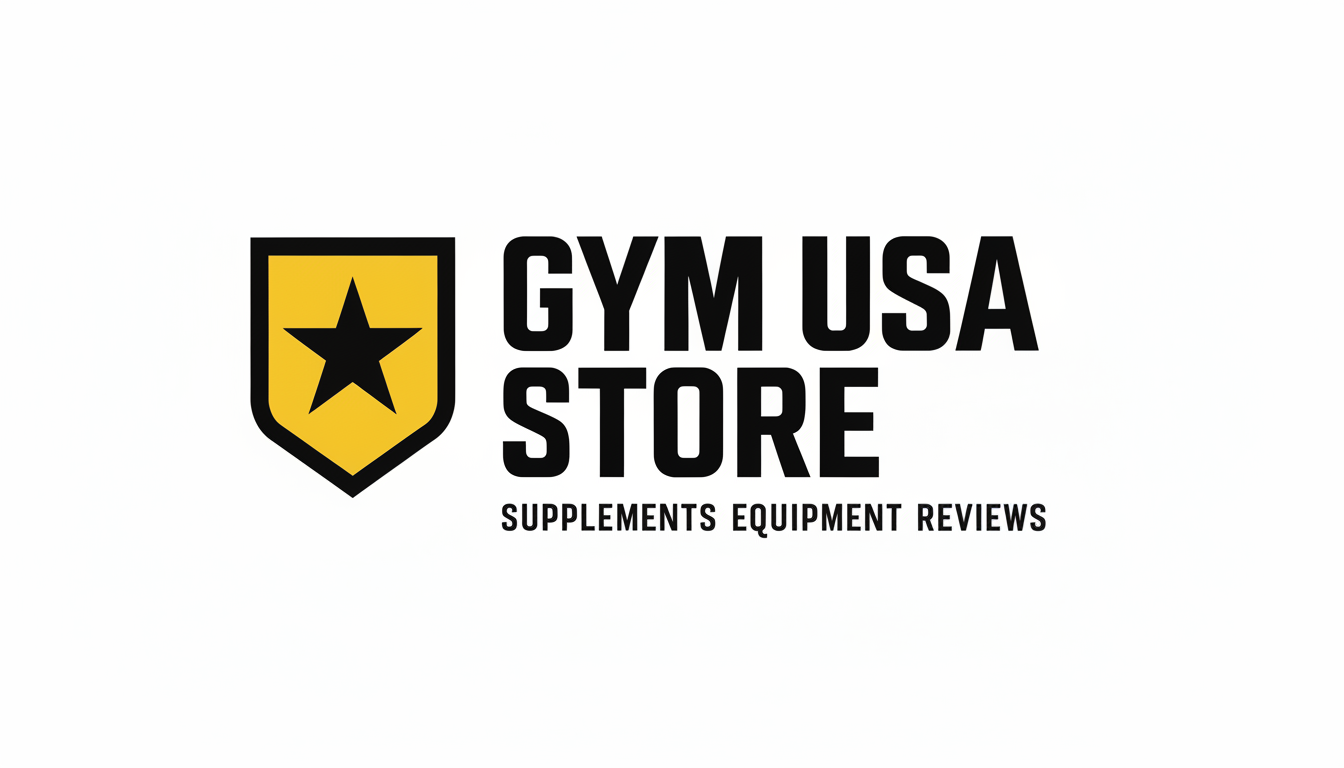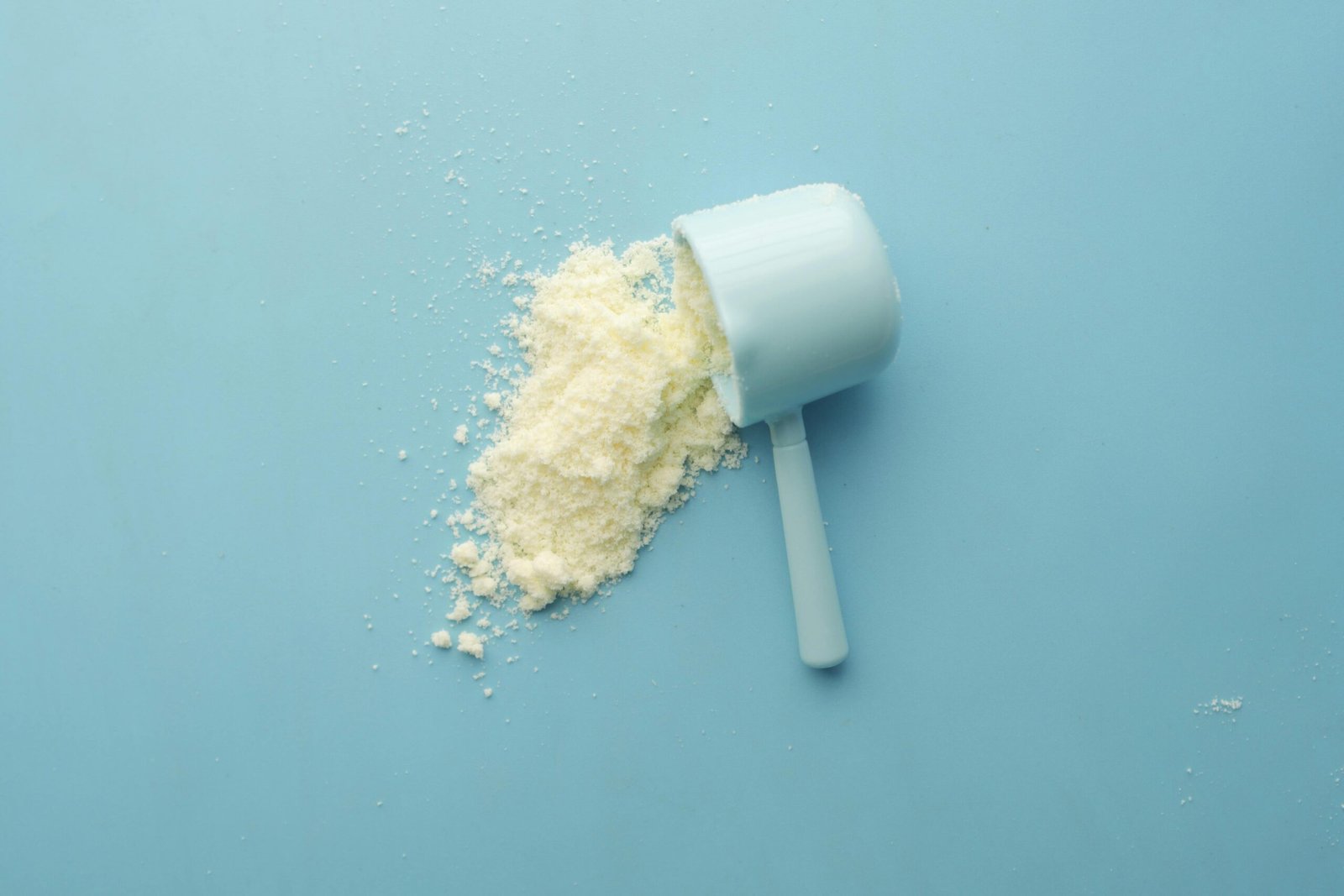Whey protein muscle builder for bodybuilders. If you lift to grow, protein is the rate-limiting resource that turns training stress into new contractile tissue. Among available proteins, whey has a unique combination of fast digestion, high essential amino acid density, and an unusually high leucine content—making it a go-to “workhorse” for bodybuilders. Below is a science-driven, practical guide you can use immediately, with citations to the most influential research.
What “muscle building” actually requires
Muscle hypertrophy hinges on tipping the balance between muscle protein synthesis (MPS) and muscle protein breakdown (MPB). Resistance training provides the signal; dietary protein (especially leucine-rich protein) provides the building blocks and the trigger for MPS. Your program should therefore optimize:
- Total daily protein intake
- Per-meal dose and amino acid profile (leucine!)
- Timing around training (useful, not magical)
- Digestibility and absorption kinetics
- Consistency over weeks and months
Why whey protein is different
- Fast absorption (“fast protein”): Whey empties from the stomach and appears in blood rapidly, producing a large, quick rise in essential amino acids and leucine—ideal for turning on MPS after training. In classic tracer studies, whey behaved as a fast protein compared with casein, which is “slow,” with different impacts on whole-body protein balance. PubMedPNAS
- Leucine-rich profile: Whey provides ~10–12% leucine by protein weight—typically ~2.5–3.0 g per 25 g serving—positioning a single scoop near the leucine “stimulus” zone for many lifters (more on “how much” below). Evidence suggests leucine dose is a key predictor of the post-exercise anabolic response, especially with age, though the exact “threshold” is nuanced and still debated. PMCScienceDirect+1
- High quality: Whey scores at the top on protein quality metrics (complete essential amino acid profile, high digestibility), supporting efficient use for muscle repair and growth.

How much protein do bodybuilders actually need?
Daily targets (the big rock)
- The best meta-analysis to date indicates ~1.6 g/kg/day maximizes resistance-training–induced gains in fat-free mass for most people, with little benefit above that for the average responder. Competitive bodybuilders or those in a calorie deficit often push higher (e.g., 2.0–2.4 g/kg/day) for appetite control and lean-mass retention—still consistent with sports-nutrition position stands. PubMedBritish Journal of Sports MedicineBioMed CentralPMC
Quick math
- 80 kg (176 lb) lifter → baseline ~130 g/day (1.6 g/kg).
- Contest prep or aggressive cut → consider 1.8–2.4 g/kg (144–192+ g/day), prioritizing food tolerance and total calories.
Per-meal dosing (the “dose that moves the needle”)
- For young, resistance-trained adults after whole-body training, ~40 g whey elevated MPS more than 20 g in a tightly controlled lab study—likely reflecting the larger amino acid demand from more muscle mass activated. With smaller sessions or less muscle mass, 20–30 g may suffice, but heavy, high-volume days often benefit from 30–40 g. PMC
- Heuristic based on body size and mixed-meal context:
- 0.3–0.4 g/kg high-quality protein per meal hits an effective leucine+EAA dose for most trained adults. Older lifters or those in energy deficits may sit toward the higher end. These meal-by-meal targets align with the total-daily evidence above and modern position stands. BioMed Central
It is essential to contextualize the 1.6 g/kg/day target as the sufficient dose for the average responder. However, in competitive bodybuilding, the goal is not merely to be an average responder. The “diminishing returns” observed at higher intakes are exactly the territory where competition is decided. Increasing to 2.0-2.4 g/kg/day during aggressive calorie restriction provides a buffer against muscle catabolism that the 1.6 g/kg baseline may not fully mitigate. This higher intake is less about further stimulating muscle protein synthesis and more about creating an excess of substrate, a “nutrient buffer,” to ensure that even under maximal systemic stress, the body always has abundant amino acids available for repair, making breakdown for fuel a last resort. This is not a linear “more is better” approach but a targeted, phase-specific defensive strategy to preserve lean mass when the body’s homeostatic drive is to shed it.
Timing: helpful, not holy
- Post-workout: A practical window is the first 0–2 hours after training; prioritize 20–40 g whey (or equivalent whole food) to rapidly supply leucine and EAAs. This helps maximize the exercise-induced sensitivity of muscle to amino acids without obsessing over minutes. Recent journalism summarizing experts echoes the consensus that total daily protein matters most, with timing as a secondary lever. EatingWellThe Guardian
- Pre-sleep: If your total daily protein is already optimized, a casein-rich pre-sleep feeding can modestly support overnight MPS; however, overall daily intake out-ranks timing in effect size. (Whey can be used at night as well—just expect faster absorption.)
See more: Whey protein as a main muscle builder for bodybuilders
What form of whey should you choose?
- Whey Concentrate (WPC 70–80%): Most economical, small amounts of lactose and fat. Great default if you tolerate dairy and want value.
- Whey Isolate (WPI 90%+): Lower lactose/fat per serving; useful if you’re lactose-sensitive or cutting calories tightly.
- Whey Hydrolysate (WPH): Pre-digested peptides for ultra-rapid absorption; premium price with limited hypertrophy advantage over isolate for most lifters.

Bottom line: For bodybuilders, WPI balances cost, digestibility, and macros. Choose WPC if tolerance and budget are good; WPH is niche.
“Whey vs. casein” and blends
- Whey (fast) spikes amino acids and MPS rapidly; casein (slow) provides a longer trickle. Neither is universally “better”—they’re tools. Many bodybuilders use whey after training and casein or solid food at other meals for sustained coverage. Blends can smooth digestion and satiety across the day. PubMed
Practical protocols for bodybuilders
After training (whole-body or high-volume):
- 30–40 g whey isolate + water (or milk if you want extra calories) within ~2 hours post-lift. Add 25–60 g carbohydrate if the session was glycogen-depleting or you’ll train again within 24 hours.
On rest days:
- Maintain your daily protein target; distribute across 3–5 meals. Use whey to “top up” meals that are light on protein.
During a cut:
- Aim toward 1.8–2.4 g/kg/day total protein to protect lean mass; whey helps you hit targets with fewer calories per gram than many whole-food options.
During a bulk:
- Keep 1.6–2.0 g/kg/day; do not crowd out carbohydrates and total calories needed for training performance.
The true integration of whey must be viewed through the lens of nutritional periodization. Its role is not static across a training year. During a massing phase, whey’s primary function is to conveniently augment a hypercaloric diet already rich in whole-food proteins, ensuring leucine thresholds are met without excessive digestive bulk. In a cutting phase, it transforms into a critical, high-leverage tool: its high protein-to-calorie ratio becomes paramount for preserving lean tissue while in a deficit. Here, the precise, timed post-workout dose is most crucial, as the body’s tolerance for suboptimal protein timing is lowest. The advanced bodybuilder therefore doesn’t just “take whey,” but strategically modulates its importance within their annual nutrition plan, elevating it from a daily staple to a targeted, phase-specific intervention for mass preservation.
Safety, kidneys, bones, and “too much protein”
- In healthy lifters, daily intakes in the 1.4–2.0+ g/kg range are well-supported by position stands and long-term trials. Concerns about kidney or bone health do not apply to healthy, resistance-trained populations consuming high-quality protein within energy-balanced diets. If you have renal disease or other medical conditions, consult your clinician. BioMed CentralPMC
Troubleshooting & fine-tuning
- Digestive comfort: Try isolate if you’re lactose-sensitive. Split large servings (e.g., 40 g) into two 20 g doses 30–60 minutes apart if you get GI upset.
- Appetite management: Whey is less satiating than casein or mixed meals for some. In a deep cut, anchor more meals with solid proteins or casein, and use whey to fill gaps.
- Plateau busting: Before raising protein above ~1.6–2.0 g/kg/day, audit progressive overload, sleep, and total calories—those stall hypertrophy first.
- Vegan lifters: Whey isn’t essential; you can match outcomes by combining complete plant proteins or using a soy/pea–rice blend that reaches ~2.5–3 g leucine per dose and hits total daily targets.
Sample meal map (90 kg bodybuilder, lean bulk)
- Target: ~1.8 g/kg = 160–170 g protein/day
- Breakfast: 4 whole eggs + oats + fruit (~35 g protein)
- Lunch: Chicken, rice, veg (~45 g)
- Post-workout: 35 g whey isolate + banana (~35 g)
- Dinner: Salmon, potatoes, salad (~40 g)
- Optional pre-sleep: Greek yogurt or casein (~25–30 g)
Quick answers (FAQ)
Is whey required to build muscle?
No. It’s a convenient way to meet evidence-based protein targets with a favorable leucine profile.
How many scoops post-workout?
Most bodybuilders thrive on 1–1.5 scoops (25–40 g) depending on body size and session type. After whole-body lifts, ~40 g may outperform 20 g for MPS. PMC
Will more than 2.0 g/kg/day build extra muscle?
Beyond ~1.6 g/kg/day, average additional gains are small in controlled trials; individual needs vary with energy balance, volume, and preference. PubMed
Do I need to slam protein within 30 minutes?
Not strictly. The “window” is wider than old dogma; hit your total daily and place a 20–40 g high-quality dose within a couple of hours of training. EatingWell

Key research you can trust
- Meta-analysis shows ~1.6 g/kg/day saturates gains for most lifters; more offers diminishing returns on average. PubMedBritish Journal of Sports Medicine
- Position stands from the International Society of Sports Nutrition support 1.4–2.0+ g/kg/day, higher with heavy training or energy deficits. BioMed CentralPMC
- Fast vs. slow proteins: Whey’s rapid absorption vs. casein’s slower, sustained release—different tools for different jobs. PubMed
- Per-dose MPS: 40 g whey after whole-body training > 20 g in young trained men. Use body size and session scope to guide the dose. PMC
- Leucine matters, but context matters too: It’s a powerful trigger, yet newer work cautions against over-simplifying the “threshold.” ScienceDirect+1
The take-home for bodybuilders
- Anchor your plan with totals: 1.6–2.0 g/kg/day (higher when cutting).
- Use whey strategically: 20–40 g after lifting, and to “top up” meals that fall short.
- Prioritize training, calories, sleep, and consistency: Protein works with these—not instead of them.
Ultimately, whey protein is the ultimate translational tool of sports science—a research-backed molecule that directly converts laboratory findings on muscle protein synthesis into tangible, measurable hypertrophy. Its value lies not in mystery, but in its predictable, mechanistically understood action. For the bodybuilder, this translates to control. By anchoring your nutrition in the evidence-based totals and strategic timing outlined here, you remove guesswork. You are no longer “hoping” a supplement works; you are applying a known biological catalyst—leucine-rich, fast-absorbing protein—at the point of greatest physiological receptivity. In a pursuit often clouded by anecdote and marketing, whey stands as a rare certainty: a fundamental, non-negotiable instrument in the precise craft of building the human body. Master its use, integrate it with relentless training and recovery, and you master one of the most potent levers of physical transformation.
Dial those in, and whey becomes exactly what you want in a muscle-building supplement: efficient, predictable, and relentlessly practical.
Check also information: sport supplements for sale in US.

